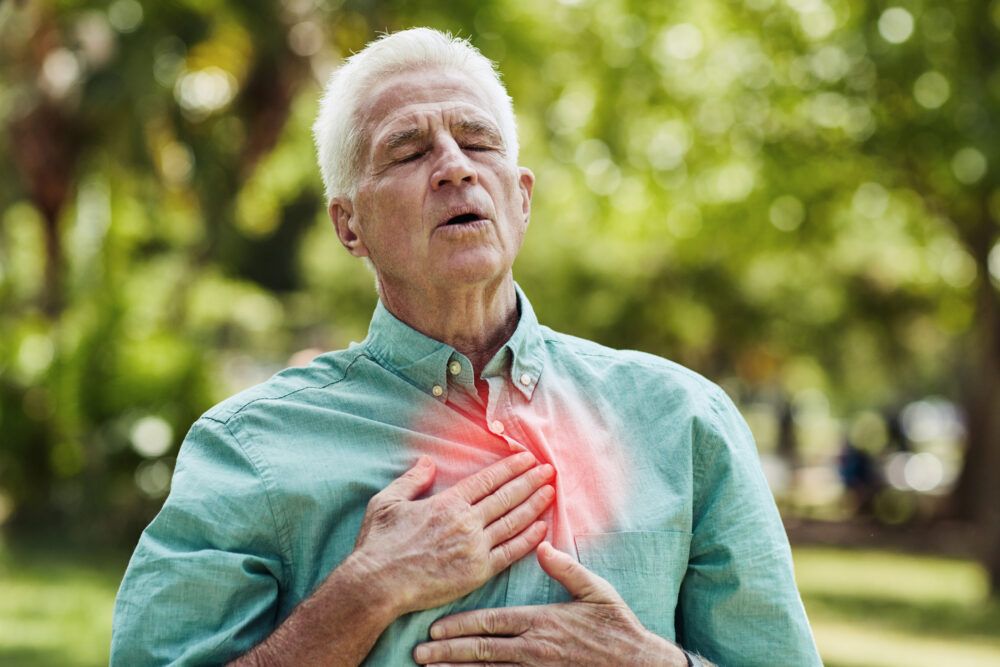Summer heat might be a great time to dive into the local swimming pool, but along with the added activity of the season, the high temperatures also can create the added risk of a serious cardiac event. Whether cleaning out the garage, trimming the shrubs, or just playing an intense game of basketball, when chest pain sets in, you need to know whether it’s just a bit too much exertion or possibly a heart attack.
When blood is blocked from delivering needed oxygen to the heart muscle, some of that vital tissue dies, resulting in a heart attack. It can cause severe pain and discomfort that presents most predominantly as chest pain.
Heart-related chest pain is referred to clinically as “angina,” and it’s often hard for patients to define. People will describe it as squeezing the chest or pressure like someone sitting on it.
Kettering Health cardiologist Dr. Michael Sun says that many people may not realize they are experiencing a cardiac event, especially if they’ve had no history of it before.
When to suspect a cardiac event
“A lot of times, for an acute cardiac event, it comes on suddenly, and the patient may never have had these symptoms before,” he said. “Patients will usually stop whatever they’re doing and sit and rest for a minute to see if the symptoms go away, but they don’t. The symptoms do not get better.”
Patients describe feeling nauseated and breaking out into a cold sweat. There can be other associated symptoms, as well, such as discomfort in the left arm, shoulder, back, neck, and jaw. These symptoms should be considered red flags and possible beginnings of a heart attack.
Damon Givens, a fairly young man, was mowing his lawn on Father’s Day when he ended up face-down in his front yard. At their young son’s prodding, Damon’s wife, who hadn’t seen him collapse, rushed to his side and immediately began CPR.
First responders took Damon immediately to Kettering Health Washington Township, where tests revealed that he had suffered a heart attack caused by a 95% arterial blockage. With a stent and heart catheterization, the blockage was removed, and today, with a few medications, Damon is back to normal and doing well, with no side effects of his experience.
Damon’s story is a great reminder that heart attacks can happen to anyone, at any time, at any age. While there aren’t a lot of risk factors for people in their 20s, and it’s not common, heart attacks can happen. Everyone should be aware of those red flag symptoms, regardless of age.
What you can do to prevent heat-induced heart issues
The summer heat and increased activity can sometimes trigger one of these events, but there are some things you can do to decrease your risks this summer. Many of these preventative measures might even seem like common sense.
- Staying out of the sun during peak hours, between 12-4 p.m.
- Do yard work and other outdoor chores early in the morning or later in the evening when the sun isn’t as strong, and there is less humidity.
- If you can’t avoid working outside during these peak times, do your best not to overdo it.
“What I tell my patients, with or without heart conditions, is ‘listen to your body,’” Dr. Sun advises. “If you’re outside in the heat, exerting yourself a lot, and you feel like you just have to push through what you’re doing just to finish, it’s probably time to take a break.”
Don’t take chances with chest pain. If you or a loved one experience any red flag symptoms this summer, don’t wait; call 9-1-1 and get help.









